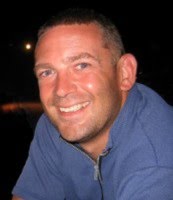In the evenings, I often enjoyed standing outside the accommodation, on the 1st floor metal stairs running down the side of the building. The night air was refreshingly cool, with a brisk wind blowing down from the snow-capped mountains surrounding Kabul. The air was usually clear and, when the clouds were absent, the moon would rise majestically from behind the darkened mountain peaks, so unfeasibly large that I felt a well thrown pebble could reach it.
Later in my first week at the compound, I was standing on my vantage point enjoying the cool, clear evening air, when a crackle of gunfire burst from the darkness in the middle distance. I watched cautiously as a stream of fluorescent red beads arched gracefully across the sky, relieved that they were moving in the opposite direction to me. ‘Tat-Tat-Tat-Tat-Tat’ echoed across the night air, as the gunfire built with intensity, shortly followed by the deeper ‘Tum-Tum-Tum-Tum’ retort of a 50’ caliber support weapon as it added some zipping dots of color to night sky.
Having been confined within the compound since my arrival, I was still very fuzzy about the geography outside in the suburbs of Kabul. From what I could remember, there was little habitation in the direction of the gunfire. Some mud walled buildings, dusty fields and an isolated hillock with an observation post on its crest. Everything behind that was obscured from view, except for the rising walls of the surrounding mountains that began several dozen kilometers distant.
Suddenly, my awareness peaked. There wasn’t any gunfire heading in my direction, but I became acutely aware that I was stood only a stone’s throw from an extremely large volume of highly aviation fuel, in the nearby bulk fuel installation. I mentally debated how combustible that fuel would be, if hit by a stray tracer round. I felt vulnerable.
I stood and watched. Was it an ambushed American patrol? A roadblock engaging a vehicle? A small outpost responding to movement on the mountainside?
My thoughts were disturbed when the accommodation door opened and I was joined by one of the South African guys that worked for our aviation business. He stood silently and watched the tracers for a few moments before remarking ‘quite a display’. I agreed, it was compulsive viewing. ‘Night firing’, he continued. It was a firing range. I am glad that I hadn’t gotten too excited about it and made a fool of myself. Even if I had of panicked, I had no body armor to wear, no siren to sound and no drills to follow.
This was my real introduction to life in Kabul. I wasn’t in the military any more. I wasn’t armed. I wasn’t expected to be concerned with these things.
I was soon to learn that there was also a quarry located near to the firing ranges. They blasted the rock most afternoons. I soon got so used to the noise of explosions and gunshots that, like most other people here, after a few weeks I completely failed to notice the impact when a car-bomb detonated at the gates of another of our companies’ compounds 200m up the street.
Kabul suffers multiple security incidents on a daily basis. Only a tiny percentage ever get reported by the media. Those are the incidents where foreigners are killed. The company I work for has its supply convoys shot at on a daily basis as they trundle through the mountainous roads to or from Kabul. It provokes little reaction when management learn of a burnt out truck or two. Fatalities of the drivers aren’t really discussed. The trucks are sub-contracted from local businesses, so the impact of those losses is not our concern; financially or, it seems, morally.
There are few countries in the world where nearby gunfire or explosions fail to interrupt conversations. Afghanistan is definitely one of those places.









+%5B320x200%5D.jpg)